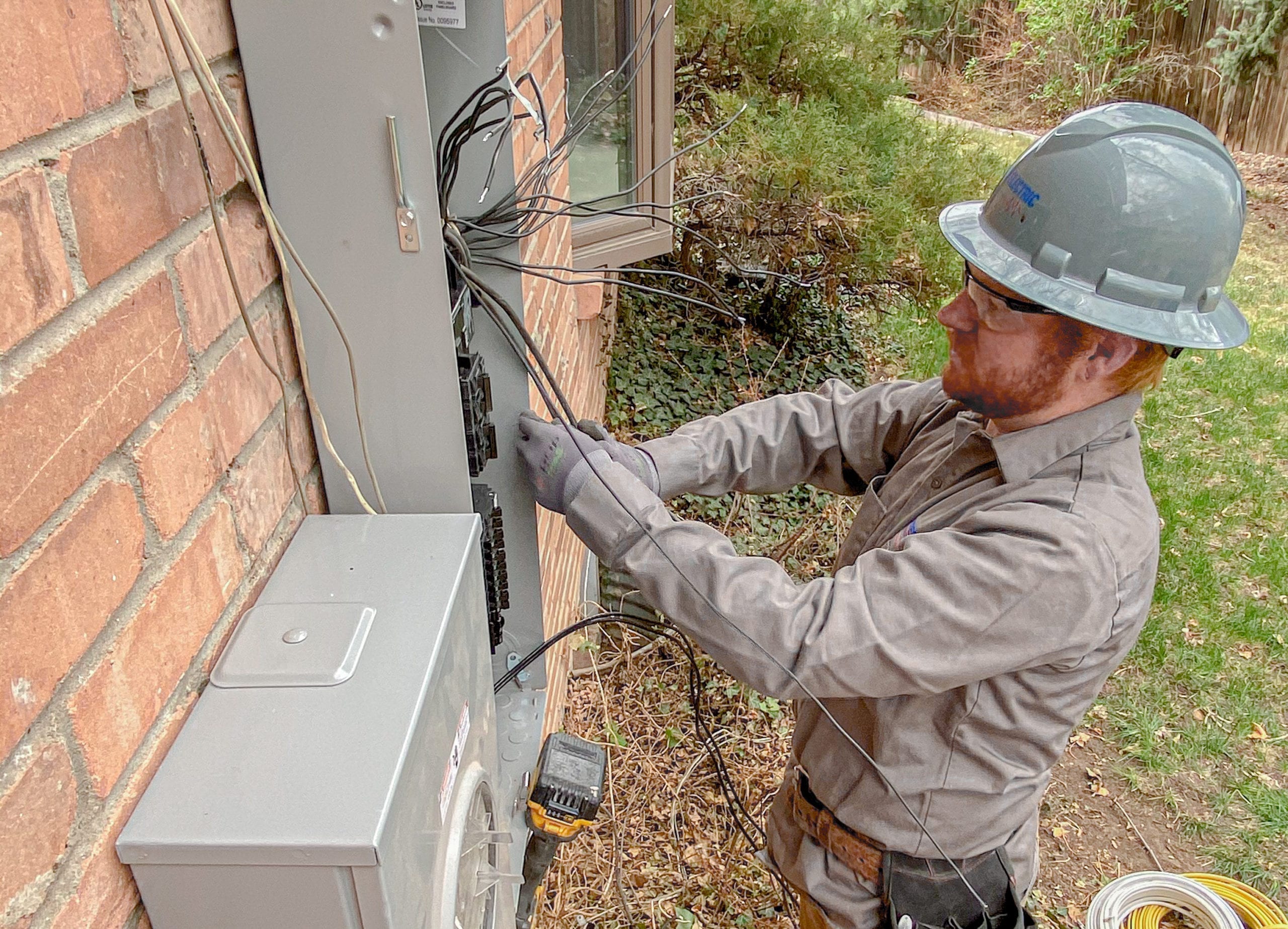
Electrical System Upgrades
Your home’s electrical system is the unsung hero of domestic life. It quietly transfers power from the local power company to all the appliances and devices in your home. But, if you live in a house that’s more than 25 years old or are planning some changes that may draw more current, then you may need some help with electrical system upgrades.
When Is A Home Electrical System Upgrade Needed?
From older homes to home additions, there are several reasons why you should consider upgrading your electrical system.
- Warning Signs: Constant tripping of a circuit break or regular blowing of a fuse is a classic symptom of an electrical system being taxed beyond its capability. The same goes for lights that repeatedly flicker, or an electrical outlet is discolored, warm, or sparking. Also, pay attention to any ongoing burning smell from an appliance or within a room.
- Safety Issues: Specific electric panels used in homes constructed from the 1950s to the 1980s are now considered safety hazards. If your house dates from this timeframe, an inspection of your home’s existing electrical panel is highly recommended.
○ Panels from Federal Pacific Electric Company were commonly used in residential construction. Eventually, homeowners noticed that circuit breakers in these FPE electric panels failed to trip. This caused entire electrical systems in some homes to short out and overload and became completely inoperative. In some cases, the defective panels would continue to send power throughout homes after circuit breakers were manually turned off. Thousands of house fires resulted. An FPE electrical panel should be replaced right away to avoid fire and electrocution risk.
○ Some homes built from the 1950s to 1970s relied on electrical panels from the now-defunct Zinsco. Homeowners faced severe safety risks due to malfunctioning Zinsco electrical panels. Melted circuit breakers in these Zinsco panels would fail to trip during power surges or short outs. As a result, homeowners were unaware of an overload situation and at significant risk for fire or electrocution. These problem panels, which may also come with GTE Sylvania or Sylvania branding, should be replaced immediately.
- Appliance Upgrade or Home Renovation: A remodeled kitchen with new appliances will likely require an updated electrical system to handle the extra power usage. Increased power requirements can also stem from a new HVAC system or an addition to the home.
- Selling The House: Installing an upgraded electrical system with modern outlets and a more capable electrical panel adds value to your house. This also eliminates one potential buyer objection.
What’s Involved With Upgrading My Home’s Electrical System?
If a licensed electrician determines your home needs an electrical system upgrade, several components could be involved. First, the electrical panel inside your home will need to be replaced with one capable of bringing more power into your home. Your existing electrical meter may also need to be swapped out—the power company typically handles this. Additionally, the electrician may add more circuits to accommodate new construction or appliances.
The upgrade may also include replacing electrical outlets and wiring. This is especially important if the home’s outlets are the older two-prong style. Newer, three-prong outlets use a ground wire to safely direct any excess electricity towards the ground. Old outlets near a water source, such as a bathroom or kitchen, may get replaced with ground fault circuit interrupter (GFCI) outlets that protect people from electrical shock.
Is a Malfunctioning Electrical System Dangerous?
The warning signs mentioned above should be taken seriously and addressed right away. According to the National Fire Protection Association, electrical malfunctions are among the leading causes of house fires. Excess heat or a spark can ignite adjacent materials, which then starts a fire.
At the same time, an older electrical system may not correctly transfer current, increasing the risk of shock or electrocution. While not a life-threatening issue, a faulty or inadequate electric system can short out appliances or cause them to wear out more quickly.
Can I Do an Electrical System Upgrade By Myself?
In a word, “no.” Major work, like an electrical system upgrade, should only be performed by a licensed electrician. All jurisdictions require licensure so that these professionals perform electrical work according to industry standards and mandated building codes. DIY electrical work can be a recipe for disaster.
If you’re in the Denver Metro area, Piper Electric can help. We offer a whole home electrical inspection to ensure you have the compatible wiring needed for proper appliance installation. Contact us here or call (303) 557-2108.
